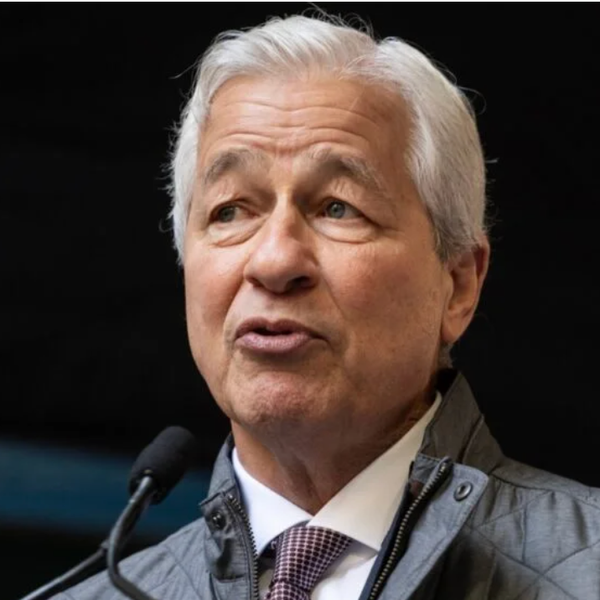What Was Behind The MAGA Republicans' Florida Stumble?
Is the 2024 MAGA magic fading already?
Don’t bet on it. And yet, Tuesday’s special election results in Wisconsin and Florida were…not terrible for the Democrats.
Let’s start with Wisconsin, where the news is good. Liberal Democrat Susan Crawford pulled out a State Supreme Court win [in a "nonpartisan" election] by a healthy ten points, despite tech billionaire Elon Musk having sunk $25 million of America PAC money into the race. Jill Underly was also re-elected as State Schools Superintendent, defeating education consultant Brittany Kinser by a comfortable five points. Kinser, who was running on the Republican ballot line, described herself during the campaign as a “blue dog Democrat.”
In fact, OpenSecrets identifies Kinser as a consistent Democratic donor. That said, she supports school choice and ran a public charter school network. She outspent Underly more than 2-1, much of the money from the Wisconsin GOP, and I am sure she had nothing to do with the mailers and texts targeting blue districts that falsely identified her as the actual Democrat in the race.
However, our main focus today is Florida, where the Democrats did not win either congressional race, but demonstrated potential Republican weaknesses as we make the turn into 2026.
These two special elections, on opposite sides of the state, were in solid GOP districts: the job was to restore two votes to Speaker Mike Johnson’s whisper-thin Congressional majority. FL-06, in northeast Florida, was vacated by Mike Waltz, who is now Donald Trump’s national security advisor and the genius who let The Atlantic editor Jeff Goldberg into the Signal chat. FL-01 is Matt Gaetz’s former seat, which he vacated to become Trump’s attorney general. Except that didn’t work out. Long-suppressed evidence of Gaetz’s bottomless yuckiness finally became public, and even Republican Senators found themselves unable to vote for him as the nation’s chief law enforcement officer.
Democratic Party messaging had held out no hope that either of these seats were winnable, and they weren’t. And yet, here is what I want you to notice. In FL-06, with more than 95 percent of the vote in, State Senator Randy Fine beat Democrat Josh Weil by 14 points. Yet five months earlier, in November 2024, Waltz won the seat by 33 points.
Those 19 points shifting into the Democratic column are, some pundits argue, the victory. But there’s more. Let’s take a look at the county-level margins. Here are Waltz’s numbers from five months ago:

Courtesy of The New York Times
You see disproportionate gaps in two places: Volusia County and St. Johns County, both popular destinations for Canadian snowbirds (these are not birds, but actual people who come to Florida in the winter months.)
Like other Florida property owners, these folks have faced escalating insurance costs and HOA fees, which they are paying with weaker Canadian dollars that will decrease further in value as the Trump tariffs go into effect. Then, as one insurance industry site noted a week before the election, there’s the general Canada-hatred, which has caused Canadians who rent or stay in hotels and resorts to cancel their vacations too.
But, you say, Canadians don’t vote in American elections! Right you are.
However, the many Floridians who rely on snowbird home ownership, rentals and tourism for their own income do vote. And what they are seeing is not good: 25 percent of Florida real estate sales in the past year have been Canadians dumping their property.So, pay attention to that. We may be seeing something similar in FL-O1, where Gaetz trounced Gay Valimont by 32 points in November 2024. His replacement, Florida’s chief financial officer Jimmy Patronis, beat Valimont yesterday by less than half of that. Here’s the part that intrigues me: in Escambia, Florida’s most western county, Valimont—who lost to Gaetz by 14 points—beat Patronis by 3 points.
People, 20 points is a lot of ground to make up in five months.
There’s more: according to Tobie Nell Perkins at First Coast News, Escambia has not voted for a Democrat in the last eight gubernatorial cycles, and last voted for a Democratic president in 1960, when it went for John F. Kennedy. This area, anchored by Pensacola, is also a popular snowbird destination. What may be more significant is how heavily military the area is: Pensacola contains over 16,000 active-duty troops, and 7400 civilian employees, an estimated 5-8 percent of whom will get the axe any day now. Greater Pensacola boasts more than 35,000 retired military, contributing to the largest concentration of veterans in any congressional district in the country.
You see where I am going here? During her campaign, Valimont hammered on the cuts to veterans’ services and federal employees. “Trump’s executive orders and the slash-and-burn tactics of billionaire Elon Musk ’s DOGE take aim at federal agencies that serve the region’s veterans,” AP political reporter Kate Payne observed last week; “the faith of some of the district’s conservative voters is being tested.”
Heather Lindsay, a Republican and the mayor of Milton, Florida, in neighboring Santa Rosa County, called the cuts “disastrous,” saying they’re a threat to services that veterans like her brother rely on.
“We have a demonstrated need in this area. And yet they’re going to cut VA services,” Lindsay said in an interview.
Jason Boatwright, a former staffer for Gaetz, said Patronis should be defending the Pensacola VA.“
He needs to stand up and say: ‘You want to make cuts? That’s fine. But don’t do it here. We can’t afford it here,’” Boatwright said.
Lindsay said she doesn’t understand “why more questions haven’t been asked” by Republican leaders like Patronis.
A reliable Republican political consultant I contacted is taking the Escambia results with a grain of salt. Although the GOP had to spend $4 million in FL-06 to beat back Josh Weil, Ryan Girdusky doesn’t see these contests as a referendum on Trump by Republicans, only an energized Democratic one. “I just don’t think people were that engaged,” he told me. “Also, Republicans spent less than $1 million” in FL-01, while Democrats spent $6 million. Republicans “knew it was in the bag so they just didn’t invest in it,” Girdusky explained, and reliably red active-duty military did not make a special election a priority.
So, what have we learned in the last 24 hours?
First, yesterday’s results reinforce what we know: there are Trump voters and there are Republican voters. While the two categories overlap, Trump voters don’t necessarily get off the couch to vote in other elections, even when Elon Musk leaps around the stage in a foam cheese hat handing out checks.
Second, Musk might have been a negative factor in the Wisconsin race, and this is something to watch. As Reid J. Epstein, Julie Bosman, and Emily Cochrane report at the New York Times, the $25 million and massive social media posting Musk invested in the State Supreme Court race did not move the needle—at all. “Even more than Mr. Trump, Mr. Musk emerged in Wisconsin as the primary boogeyman for Democrats,” they write about a billionaire whose approval rating took a steep dive the day before the election. “Instead of making the race an early referendum on Mr. Trump’s White House and abortion rights, Wisconsin Democrats pivoted to make Mr. Musk their entire focus, while Republicans rode the wave of his largess.”
In other words, because Elon Musk is tied to Donald Trump, here is the unexpected opportunity. If attacking Donald Trump doesn’t work, attacking his policies does. Elon Musk has become the face of that. So, if this election had accomplished nothing else, it gives Donald Trump a choice: risk failure by sticking with Musk, or dump Musk and risk having ripped the federal government to pieces for no gain whatsoever.
Fourth, Musk’s unpopularity might also have cut GOP margins in Florida. We don’t know whether Florida veterans voted in significant numbers, but we do know that they—and their dependents—are getting it from two directions: the direct DOGE cuts to the Veterans Administration, and the cuts to other federal agencies and services that disproportionately employ veterans.
Finally, despite the high media focus on how much money is being raised and spent, it appears there are limits to how much a sea of money can accomplish. Can billionaires buy elections? Sometimes, and sometimes not. If voters either do not like the candidate, or they do not like the candidate’s high-profile supporters, they’ll take the money—and then run.
Claire Bond Potter is a political historian who taught at the New School for Social Research. She is a contributing editor to Public Seminar and wrote the popular blog Tenured Radical from 2006 through 2015. Please consider subscribing to Political Junkie, her Substack newsletter.
Reprinted with permission from Political Junkie.













